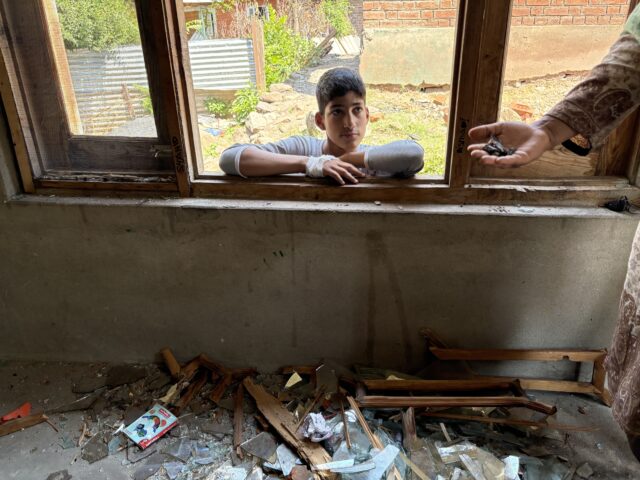“It would have been better had that Pakistani shell killed me and my family. Living life this way is more difficult. We live in fear every single day. We do not have our house anymore, we do not have money left to survive. Our condition is worse than the Pahalgam victims,” says 30-year-old housewife Zeenat, a resident of Salam Abad, a border village near India-Pakistan Line of Control (LoC) in Uri sector.
In the tranquil hamlet of Salam Abad, close to the Line of Control and home to fewer than 10,000 residents, the night was enveloped in a deep, serene slumber, until abruptly shattered in the early hours of May 7 as mortar shells crashed through roofs and walls.
This chaotic scene unfolded during the intervening night when India launched ‘Operation Sindoor’ in a kinetic response to the recent Pahalgam terrorist attacks.
Among those jolted awake was Zeenat, who lay in bed with her young child by her side. Around 2 AM, a thunderous explosion pulled her from the embrace of sleep, the violent sounds of cross-border artillery fire filling the air with terror.
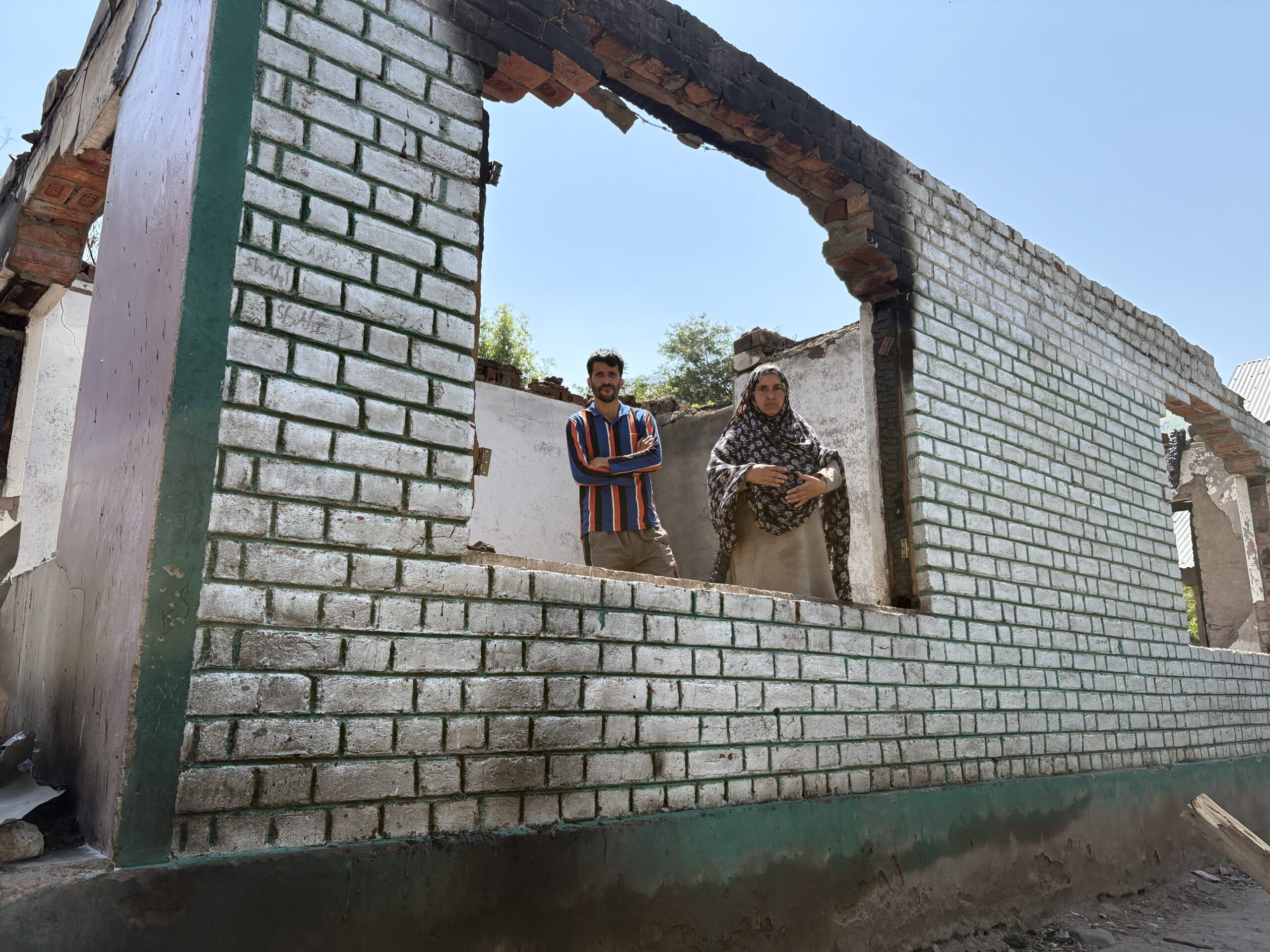
As the first light of dawn began to break, she peered out to witness a frightening spectacle: a barrage of shells streaking across the sky, their ominous trails cutting through the morning air like deadly fireworks. Just as Zeenat tried to cover her child, shrapnel from exploding shells pierced through her right chest, while another piece injured both legs.
The shells, it was later revealed to them, came from the Pakistan-occupied Kashmir (PoK). At that time the villagers, like the rest of the country, did not know that India had struck Pakistani terror bases in retaliation for Pahalgam.
Local authorities evacuated the villagers 12 hours later. The injured were first taken to Sub-District Hospital (SDH) in main Uri town and thereafter to the Government Medical College (GMC) Baramulla, which is three hours away from Salam Abad.
“We had to wait for five to six hours for help to arrive. The shelling went on continuously from 7 May till 10 May,” said Zeenat’s husband, Shameem Ahmad, labourer and farmer, holding his wife’s medical reports in hand.
Zeenat has to now undergo regular checkups at the GMC, where she spent about Rs. 5,000 for the scans and tests.
Wiping her tears, Zeenat told StratNewsGlobal, “What was our fault? Why are we having to face this kind of a life? We are equally sad about Pahalgam and sympathise with the victims completely. But why do we have to pay the price whenever such incidents occur? Whatever savings we had is now gone. We even lost our house. Who will look after us now?”
The shelling killed 18 civilians including 13 in Poonch, 3 in Rajouri and one each in Uri and Jammu.
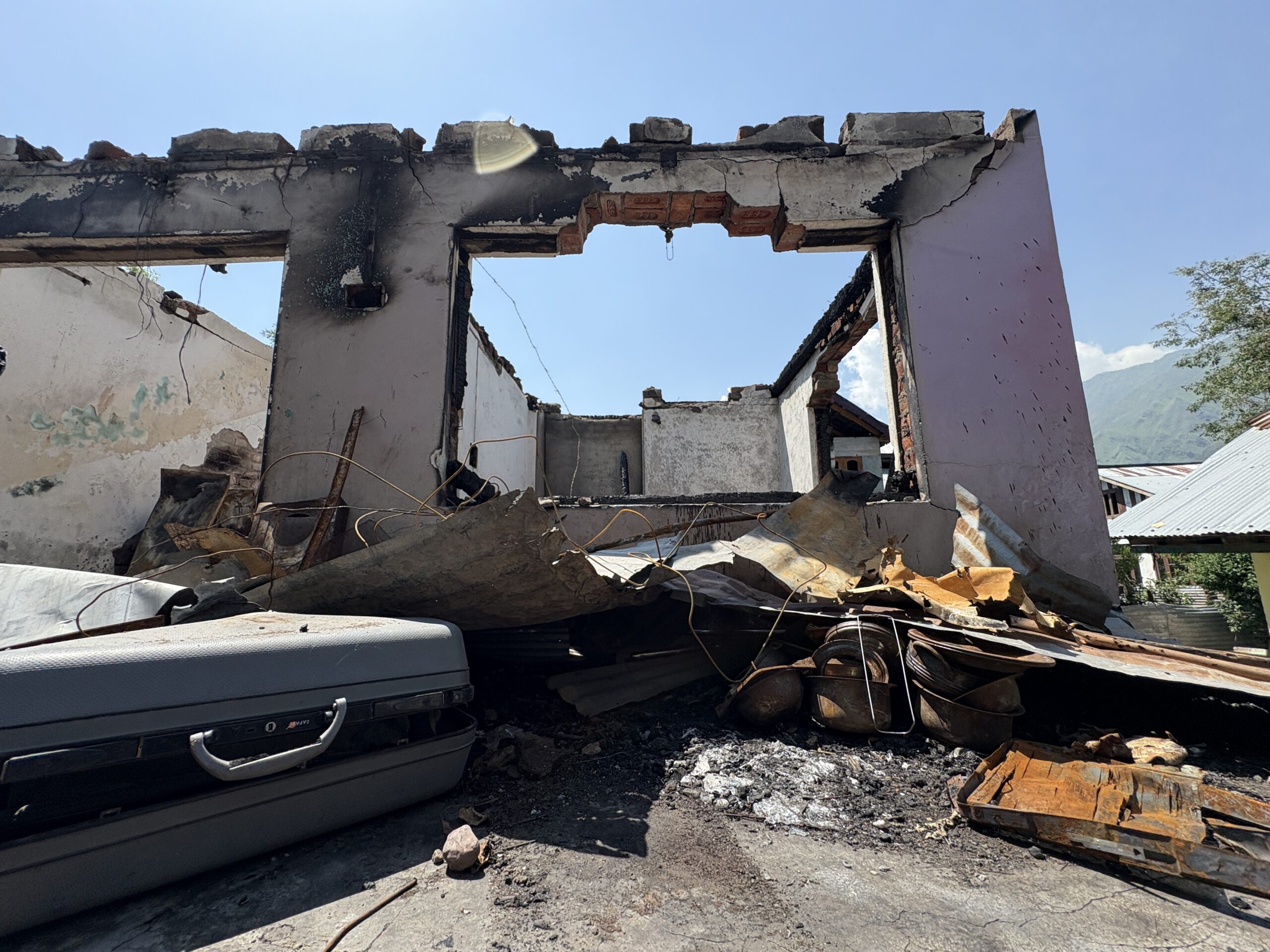
“This war has proved to be disastrous for those who live in the border areas. And this is not the first time. We have been suffering since 1947. Every time there is a conflict between India and Pakistan, it is us who live along the Line of Control, face the maximum brunt for no fault of ours,” Sajjad Shafi, the Uri MLA told StratNews Global.
He said of 587 homes, mosts have been completely destroyed. The compensation paid to the villagers ranges from Rs. 4000 to Rs. 1,30,000.
The villagers say the losses they have suffered runs into several lakhs. In the absence of a stable job and now without proper shelter, these poor and marginal families are facing mounting challenges to rebuild their lives.
“We, who are living near the LoC, need a permanent solution. The government has to now do something about these villages that lie along the LoC,” said Shafi, adding, that he has got an assurance from Chief Minister Omar Abdullah of a larger compensation package.
Talib Hussain Naik and his family of eight, saw his home and that of his brothers Younis Naik and Feroz Din Naik, destroyed in seconds. Even his property documents that were kept in a steel trunk box got completely burnt due to the shelling. He received Rs.1,30,000 as compensation from the government but wants more.
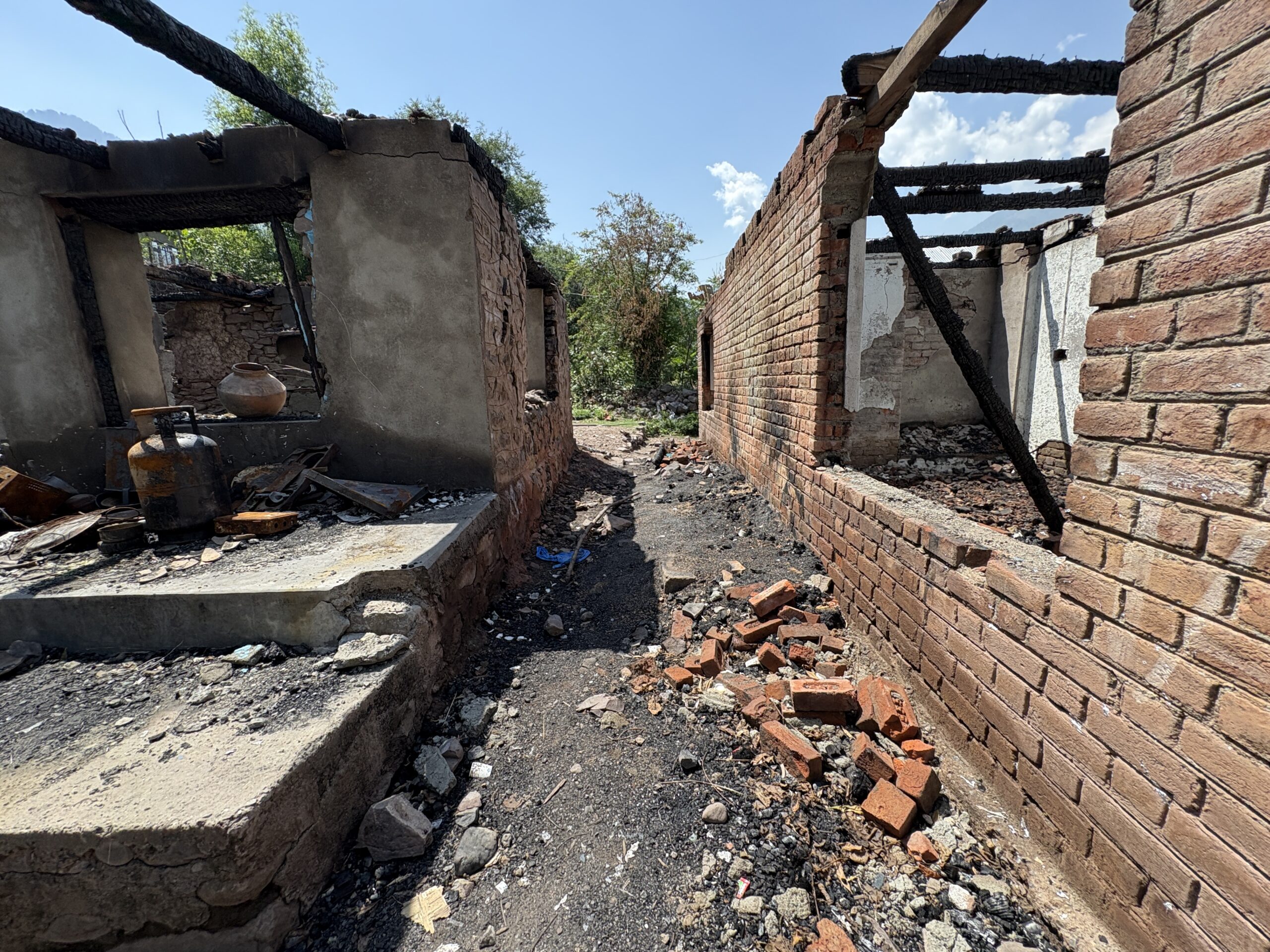
“We are a family of eight. We got support from the local authorities and NGOs but this is not adequate compensation and we would need much more to restart our lives. My brother’s house is also severely damaged and they only got Rs.6500. He has school going children. How will we live now?,” said Hussain, still visibly shaken from what happened to him a month back.
Hussain and his brother Badruddin Naik used to work as porters and made around Rs.3000-5000 on a daily basis when the LoC trade was on. They used to work in the Trade Facilitation Centre of Salamabad, Uri which is just a stone’s throw away from their hamlet.
The LoC trade was stopped by India in 2019 because the government said the cross-border routes were being misused by Pakistan for sending weapons, narcotics and fake currency into the Kashmir valley. The decision was taken in the aftermath of the Pulwama incident in which 40 Indian security personnel were killed when their convoy was attacked by Pakistan-based terrorist organisation Jaish-e-Mohammad (JeM).
The local authorities in Uri have come under pressure as the clamour for compensation grows louder. The villagers are indignant and frustration is palpable there.
In Razerwani, another tiny village lying along the LoC on the left bank of the Jhelum River, villagers still mourn the death of Nargis Begum, who died due to cross-border shelling while evacuating on the roads of Mohura on 8 May.
Sanam, 20-year-old daughter of Nargis, tells StratNews Global, “My mother was the only bread-earner of the family. She worked as a cook at a government school and other places and made around Rs. 10,000 per month.” Her father is ill and incapacitated.
“Who will run the family now? We may not have broken houses but we have lost our mother, who was also the sole bread-winner of the family,” says Sanam, who was traveling with Nargis on that fateful night along with their other relatives. Their entire family huddled in two Scorpio SUVs when a shell that apparently came from the PoK side, ripped the cars apart leaving their mother dead and all others gravely injured.
Local NGOs have also played a crucial role in supporting these villagers so that they can go back to their normal lives once again. However, with meagre funding and less support from the authorities these NGOs are also in an overwhelming position.
Abrar Bhat, Chief Coordinator of a local NGO, Uri Foundation, said, “We tried our best to work alongside the local authorities in helping the villagers relocate to safer places but due to constant shelling, the task became arduous. We are now giving these families ration kits and also trying to cover the education cost of the school-going children.”
Bhat said the NGO is also contemplating filing a petition in the local courts to ensure that the villagers get adequate compensation.
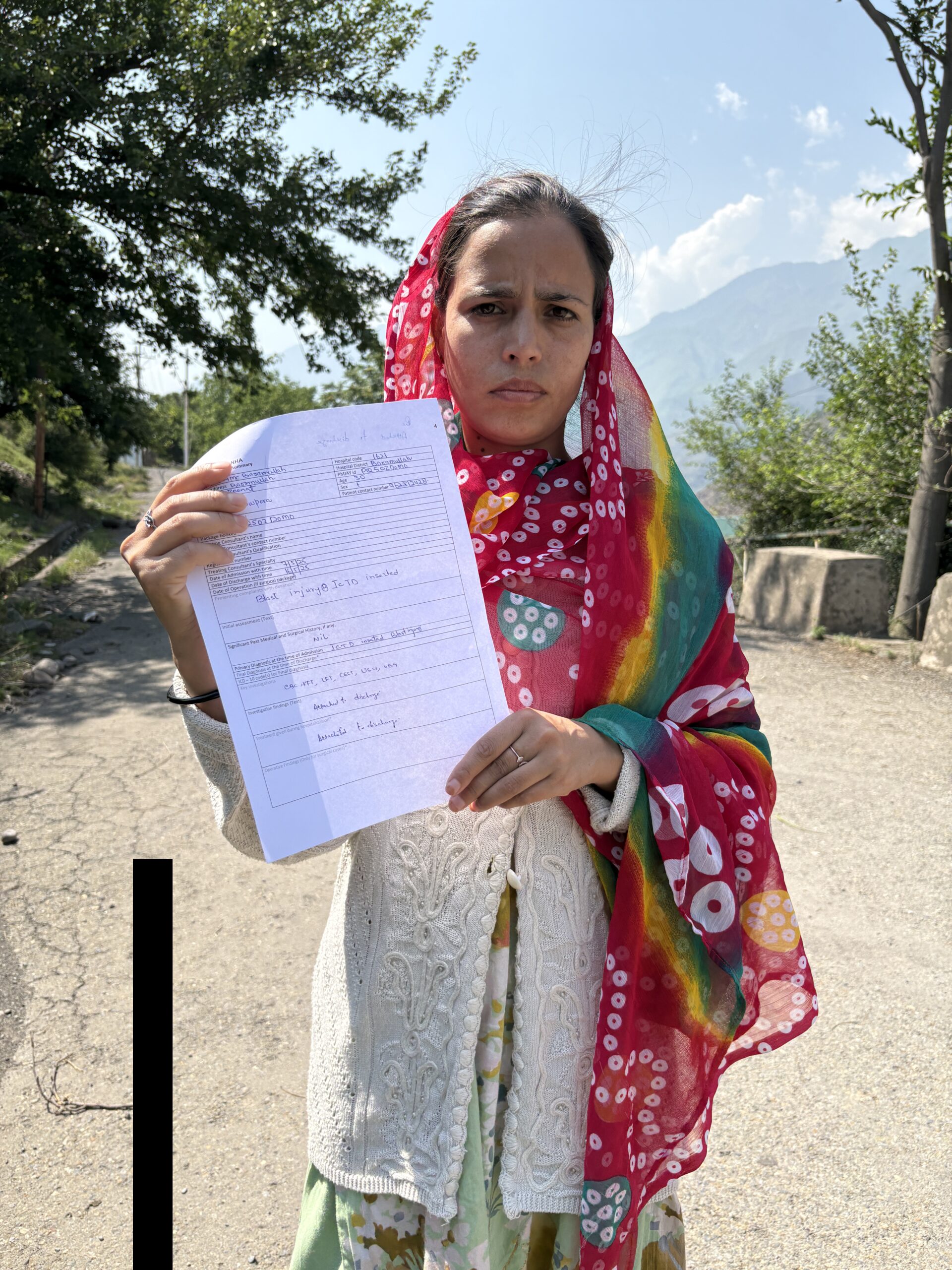
Shubhankar Pratyush Pathak, Sub-Divisional Magistrate Uri, said, “We were anticipating a response of this kind after Pahalgam happened. Uri is surrounded by Pakistan on all three sides so we had an evacuation plan ready and we relocated around 55,000 people from the Uri sub-division.”
“We have ensured that people get temporary shelters. Compensation has been released as per the notified guidelines under the state disaster relief fund. We are now working on a relief package, which will be disbursed soon,” added Pathak.
Rubina Begum, 38, resident of Uri tehsil, with her hands folded, said, “I have adolescent sons. They ask me why will the government not help us in this time of need? This is the time when the government should show us that we are their own. We are being told it is Pakistan who deliberately hit us, if that is so then why is Modi ji not helping us?”


